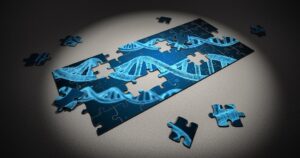
In a significant boost to biological research, a $1 million grant from the Ono Pharma Breakthrough Science Initiative is set to propel Cornell University researchers in their quest to unravel the complexities of cellular processes that could lead to new therapies for diseases like Alzheimer’s and cancer. The grant aims to support innovative approaches in understanding how cells maintain their health through autophagy, a critical cellular cleanup process.
Autophagy, a process derived from the Greek words meaning “self-eating,” is vital for cellular health. It involves cells removing and recycling damaged components, thereby sustaining cellular function. Cells use lipid membranes to encapsulate these components, which are then broken down and consumed, generating energy for the cell. However, gaps in understanding the molecular steps of this process have hindered the development of effective drugs targeting autophagy.
Exploring the Role of Lipids in Autophagy
The research, led by Jeremy Baskin, an associate professor at Cornell, will delve into how chemical modifications to proteins influence cell survival. “This research could help us understand how cells take out their trash—and what happens when that process breaks down,” Baskin explained. “If we can control this process, we may one day be able to treat many serious diseases more effectively.”
Autophagy involves wrapping unwanted materials in a double membrane called an autophagosome, which then merges with the lysosome, the cell’s garbage disposal system, for breakdown. Failures in this process are linked to diseases like Alzheimer’s, while cancer cells exploit autophagy for survival and rapid growth. Baskin’s team is investigating the role of lipid modifications in these processes.
Post-Translational Modifications: A New Frontier
Cells often regulate protein functions through post-translational modifications, which involve tagging proteins with small chemical groups. A specific type of modification involves attaching lipid molecules to proteins. Baskin’s team has developed chemical tools to identify such modifications in autophagy-related proteins, uncovering promising evidence of their widespread presence.
“Post-translational lipidation could be a general control knob for autophagy,” Baskin noted. “If we learn how to turn it, we could provide new pathways for therapies to treat some really devastating diseases.”
Current therapies targeting autophagy often act broadly, leading to side effects. By understanding and controlling these modification pathways, researchers hope to design more precise treatments. For instance, activating autophagy could help clear toxic proteins in brain diseases, while inhibiting it in cancer cells might weaken them.
The Implications of Baskin’s Research
The implications of Baskin’s research are far-reaching. If successful, it could lead to breakthroughs in treating diseases that currently have limited therapeutic options. The Ono Pharma Foundation, known for supporting early-stage scientific research, selected Baskin’s project for its potential to make significant advancements in medical therapies.
This development follows a growing recognition of the importance of autophagy in disease management. Historical parallels can be drawn to previous breakthroughs in cellular biology, where understanding fundamental processes led to transformative therapies. The potential to manipulate autophagy at a molecular level could revolutionize how diseases like Alzheimer’s and cancer are treated.
Looking Ahead: The Future of Autophagy Research
As Baskin and his team embark on this research journey, the scientific community watches with anticipation. The insights gained could pave the way for new therapeutic strategies, offering hope to millions affected by debilitating diseases. The grant not only underscores the importance of innovative research but also highlights the critical role of funding in advancing scientific discovery.
In the coming years, the findings from this research could redefine our understanding of cellular processes and open new avenues for treating some of the most challenging diseases. As scientists continue to explore the intricacies of autophagy, the potential for groundbreaking therapies remains a promising frontier in medical research.







